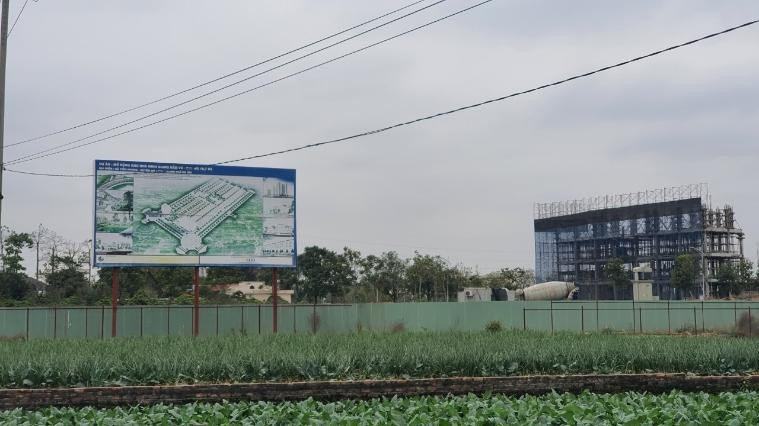
The first spell occurred in 1990-1992, and the second in 2000-2002. In fact, this was not a real fever but just a price increase as Vietnam shifted from a subsidy economy to a market economy.
Under the subsidy mechanism, in theory, land did not have prices. However, during transactions of assets attached to land, one could see that land had a price, but the prices were very low.
During the two land price increases, prices in large cities increased by tenfold each time.
The question is why land prices increases in the two periods were 10 years apart. Each time the land prices increased to suit the market conditions of regional countries, this was interrupted by the enactment of the Land Law, including the 1993 Land Law and 2003 Land Law.
The land laws lacked provisions that restricted land price increases. People stopped all actions to wait to see how the new laws would affect the real estate market.
As of 2003, land prices in large cities had been nearly equal with those in other large cities in the region, including Jakarta (Indonesia), Manila (the Philippines), Bangkok (Thailand) and Kuala Lumpur (Malaysia).
In 2003, the real estate market turned quiet because investors were shifting to the fledgling stock market. Many investors sought profits from the value of land held by equitized companies. When State-owned enterprises were equitized, the valuation of the land was still within the price framework set by the state, and therefore the prices were very low.
With this trend, a bubble accumulated in the stock market. In 2007, the securities bubble burst and investors rushed to withdraw capital from the stock market to inject into the real estate market.
The third land fever occurred in that 2007-2008 period, as a result of the massive capital shift from the stock market to the real estate market.
The land price hikes in that period were believed to be the reason behind the high inflation. The solutions to curb inflation led to a real estate market that did not have enough capital.
The Government found solutions to recover the market in 2013.
In 2014 and the next few years, the supply of high-end products was plentiful, while there was a shortage of affordable housing, even though demand was very high.
The Government then gathered strength to settle the supply-demand imbalance in the high-end sector, which centered on bad debt settlement. Meanwhile, real estate developers began making investments in new real estate products, such as condotels, shophouses, resort villas, homestays and farmstays.
In 2018, real estate market segments, including commercial housing, social housing and tourism, all faced difficulties because of the inadequate legal framework, or conflicts among related legal documents.
In 2020, the housing market segment witnessed a fourth price fever with prices increasing by twofold.
Fourth land price fever
The fourth land price fever occurred for several reasons.
The year 2020 was the first year of the 2021-2030 development planning period, when suggestions about new urban development and new projects were made. The Government also decided to increase public investment in transport infrastructure.
These factors had an impact on the real estate market, making the housing market segment more attractive to investors.
Another factor that enlivened the real estate market was the increased land lot allocation for sale. Local authorities wanted to allocate land lots for sale to increase local budget collections, while small investors wanted to buy land for speculation.
Second, the Covid-19 pandemic affected people’s incomes. People who have idle money sought new investment channels to improve their income, and the real estate market was seen as a safe choice.
That is why investor demand for real estate increased but not for the purpose of living accommodation.
Meanwhile, supply decreased because of problems in legal documents. A number of projects are still on the table, waiting for approval from state management agencies.
Third, land prices increased because of speculation and profiteering. Many real estate brokers disseminated fake news to create artificial demand.
If the fourth land price fever cannot be stopped, this will lead to high inflation. The reason behind the demand increase is speculation, and it still has not been settled.
Vietnam needs to learn from experiences from industrialized countries and discover effective measures to prevent land price fevers, which are believed to be the beginning of economic crises.
Land fever can also occur in countries with tight management like the US and Japan. A minor mistake is enough to lead to serious consequences which may take decades to solve.
Land speculation also causes a social impact. The gap between the rich and the poor increases, and the poor don’t have opportunities to buy homes.
The radical solution for Vietnam is eliminating speculation and encouraging investment in production and business. And in order to do that, it’s necessary to apple reasonable real estate taxes.
Prof Dang Hung Vo